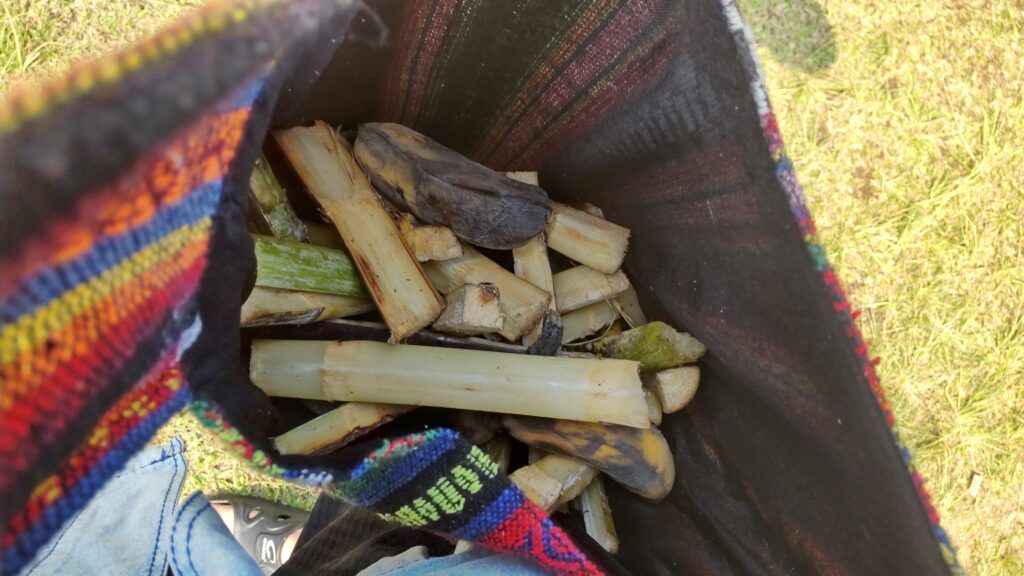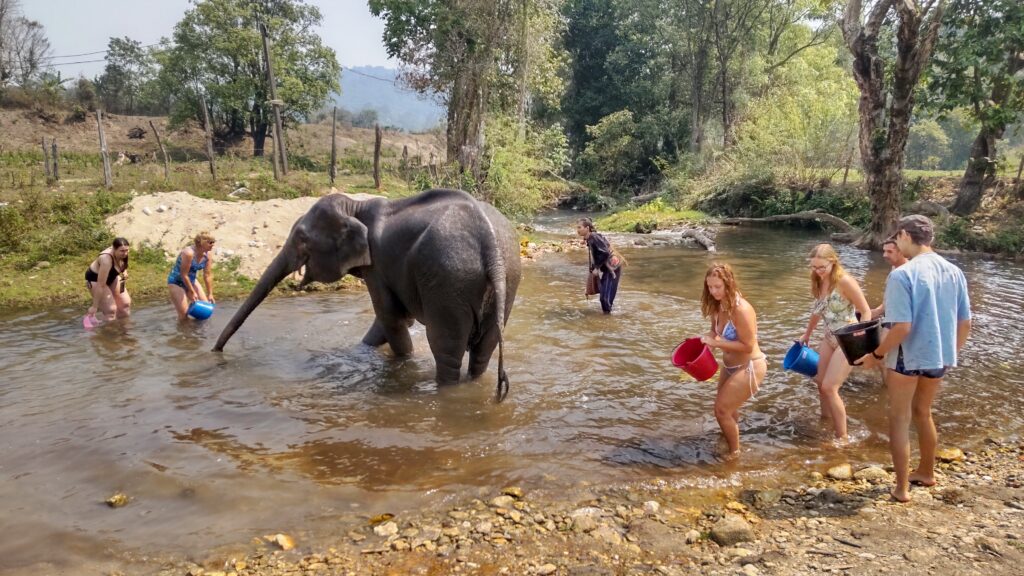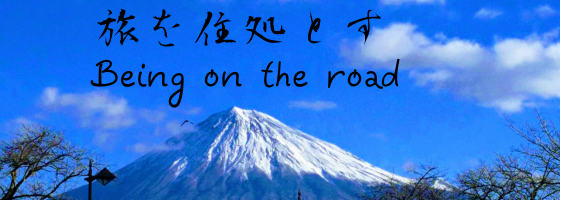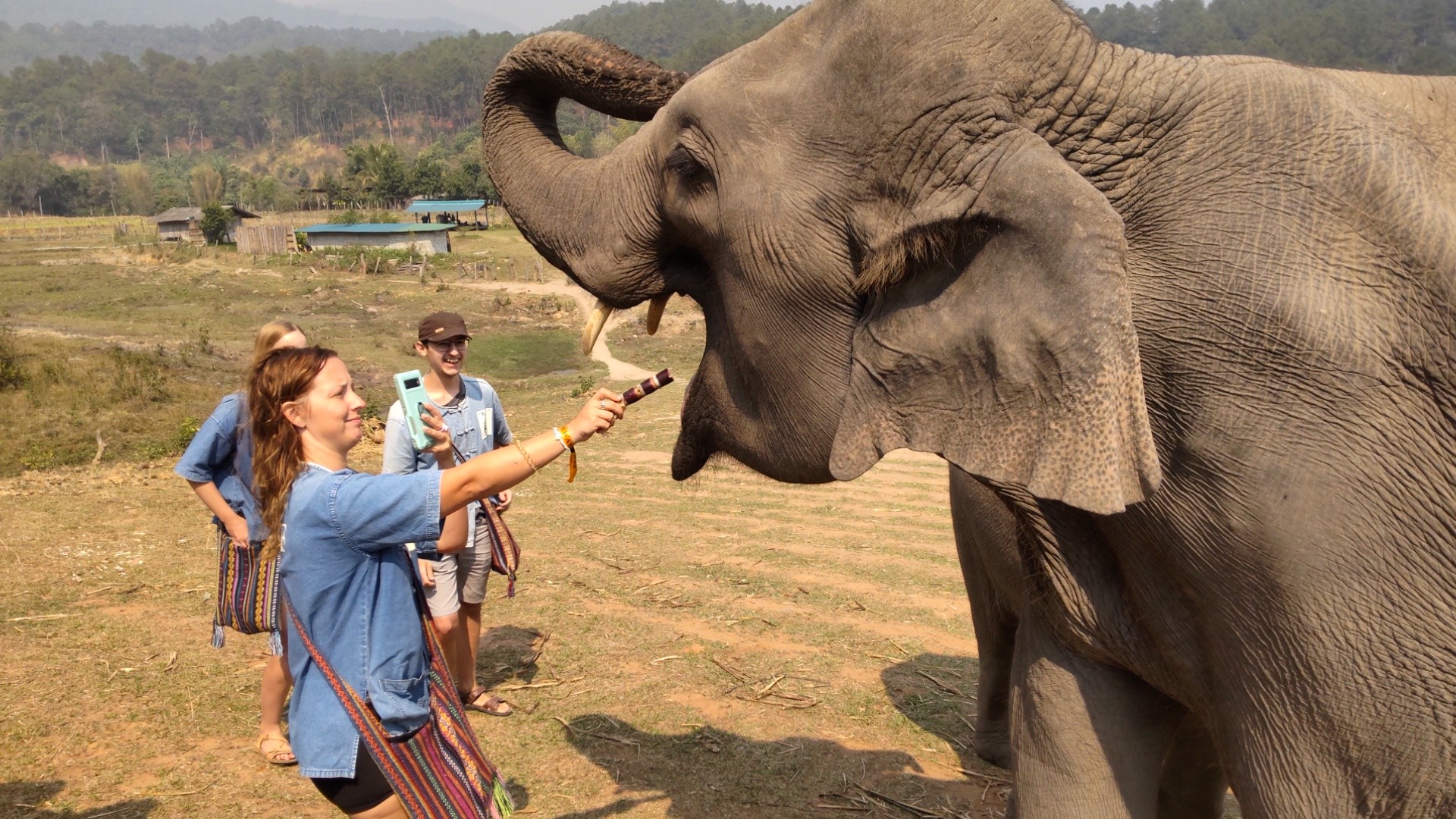Chiang Mai, a mountainous city in northern Thailand, is famous for its rich nature, historic temples, and opportunities to interact with elephants. In recent years, as the ethical treatment of elephants has gained global attention, traditional tourism styles involving riding or making elephants perform tricks are declining.
Chiang Mai offers numerous ethical elephant camp tours where you can learn about elephant ecology and safely interact with them in nature. This article will detail the types, content, and selection criteria for elephant camp tours, along with information from my own experience in February 2023.
Interact with Elephants in Chiang Mai! What are Elephant Camp Tours?
Throughout Chiang Mai city, especially in the Old City, there are tour companies everywhere. Most of these companies offer tours to elephant camps. There are several elephant camps in the mountains surrounding Chiang Mai, and each camp seems to have its contracted tour companies. The content of the tours is mostly similar, but in recent years, as ethical considerations regarding elephants have grown, differences in content have emerged.
1. Types of Elephant Camp Tours
Elephant camp tours in Chiang Mai are broadly divided into the following three types:
- Full-day tour: You can experience elephant care, feeding, bathing, and forest walks. Recommended for those who want extended interaction with elephants.
- Half-day tour: You can experience elephant care, feeding, and bathing. Recommended for those who want a short interaction with elephants.
- Elephant Orphanage Visit Tour: Visit an elephant orphanage, learn about elephant conservation efforts, and interact with elephants. Recommended for those who want to understand the current situation of elephants.
2. Content of Elephant Camp Tours
The content of elephant camp tours varies slightly by tour company, but generally includes the following:
- Learning about elephant ecology: Learn about the ecology, history, and conservation efforts of elephants.
- Elephant care: Help with feeding, bathing, and cleaning elephants.
- Interaction with elephants: You can ride on elephants’ backs, walk with them, and take photos.
- Forest walk: Walk through the forest, either on an elephant’s back or on foot.
- Traditional lunch: Enjoy traditional Thai cuisine.
3. Key Points for Choosing an Elephant Camp Tour
When choosing an elephant camp tour, pay attention to the following points:
- Ethical treatment of elephants: Avoid tours that involve riding or making elephants perform tricks, and choose tours that respect the elephants’ ecology and behavior. In recent years, due to increasing ethical awareness regarding elephants, more tours do not involve riding them. Some companies explicitly promote “NO RIDE” policies. Camps that do not offer elephant riding are often named “sanctuary,” which can be a good reference when choosing.
- Tour content: Choose a tour considering what kind of experience you want and how long you wish to stay. Half-day tours usually start in the morning, stay at the camp until early afternoon, and end around 2 PM. Full-day tours often combine the half-day experience with exploration of nearby forests or caves. If you only wish to interact with elephants, a half-day tour should be sufficient.
- Tour company reputation: It is safer to choose tour companies certified by animal welfare organizations.
- Price: Prices vary depending on the tour content and services. Compare multiple tour companies before choosing.
My Actual Experience (February 2023)
1. Pre-booking
I booked a half-day tour one week in advance with a tour company in Chiang Mai’s Old City. It was a half-day tour that did not involve elephant riding. The tour company asked me to prepare a few things personally:
- Swimsuit, sandals, insect repellent. A swimsuit and sandals are necessary if you intend to go into the river for elephant bathing. They are not needed if you only plan to observe from the riverbank.
- The cost was approximately 2000 Thai Baht at the time.
2. Day of the Tour Flow
- Morning pickup: I was picked up from my hotel at 8 AM. There were 3 people in our car, including myself.
- Arrival at camp: After about a 2-hour drive from the Old City, including a breakfast break, we arrived at the mountain camp. At the rest stop along the way, many cars carrying guests from other tours had gathered, indicating that similar tours exist for several camps. Upon arrival at our destination camp, several cars were already there, and about 20 guests were present when the tour began.
- Guide’s explanation: The guide provided an explanation (in English) about the current situation of elephants in Thailand and the day’s schedule and注意事項 (precautions).
- Changing clothes: Participants were given matching clothes and changed into them.
- Elephant feeding: Each person was given a bag containing bananas and sugarcane for feeding the elephants.
- Lunch break: Lunch was a buffet-style meal with fried rice, stir-fried noodles, etc.
- Afternoon river play: In the afternoon, we moved to the river with the elephants. We splashed water on them with buckets and scrubbed their bodies with brushes to wash them. The swimsuit and sandals were used at this time.
- End of activity: After the river play, we changed clothes, and the activity concluded. Participants of the full-day tour would then head to a different location.


Elephant camp tours aim to both entertain tourists and protect elephants. When choosing a tour, please carefully check the content to ensure you do not participate in tours that impose a burden on the elephants. The experience itself was very enjoyable, and I felt like the elephants “played” with me. I encourage everyone visiting Chiang Mai to participate!



